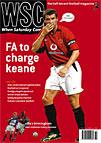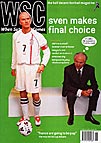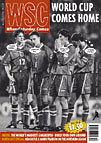 Twenty-five years ago, three UK national teams prepared for a World Cup along with Argentina, as the countries’ armed forces clashed in the South Atlantic. Jon Spurling examines the politics of football and the Falklands
Twenty-five years ago, three UK national teams prepared for a World Cup along with Argentina, as the countries’ armed forces clashed in the South Atlantic. Jon Spurling examines the politics of football and the Falklands
The Falklands conflict and the 1982 World Cup inspired flag waving, jingoism and crude, stereotyped newspaper headlines. For a few weeks in early summer, football and politics became dangerously entwined. With the Home Nations’ withdrawal from the tournament a distinct possibility, Prime Minister Margaret Thatcher’s unswerving belief that they should compete in Spain proved crucial. However, her typically stubborn public stance masked a much more cautious approach behind the scenes.



